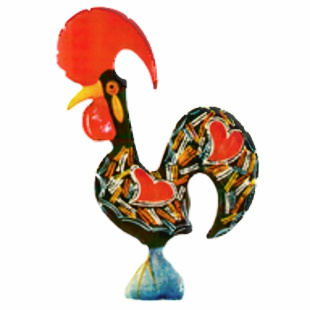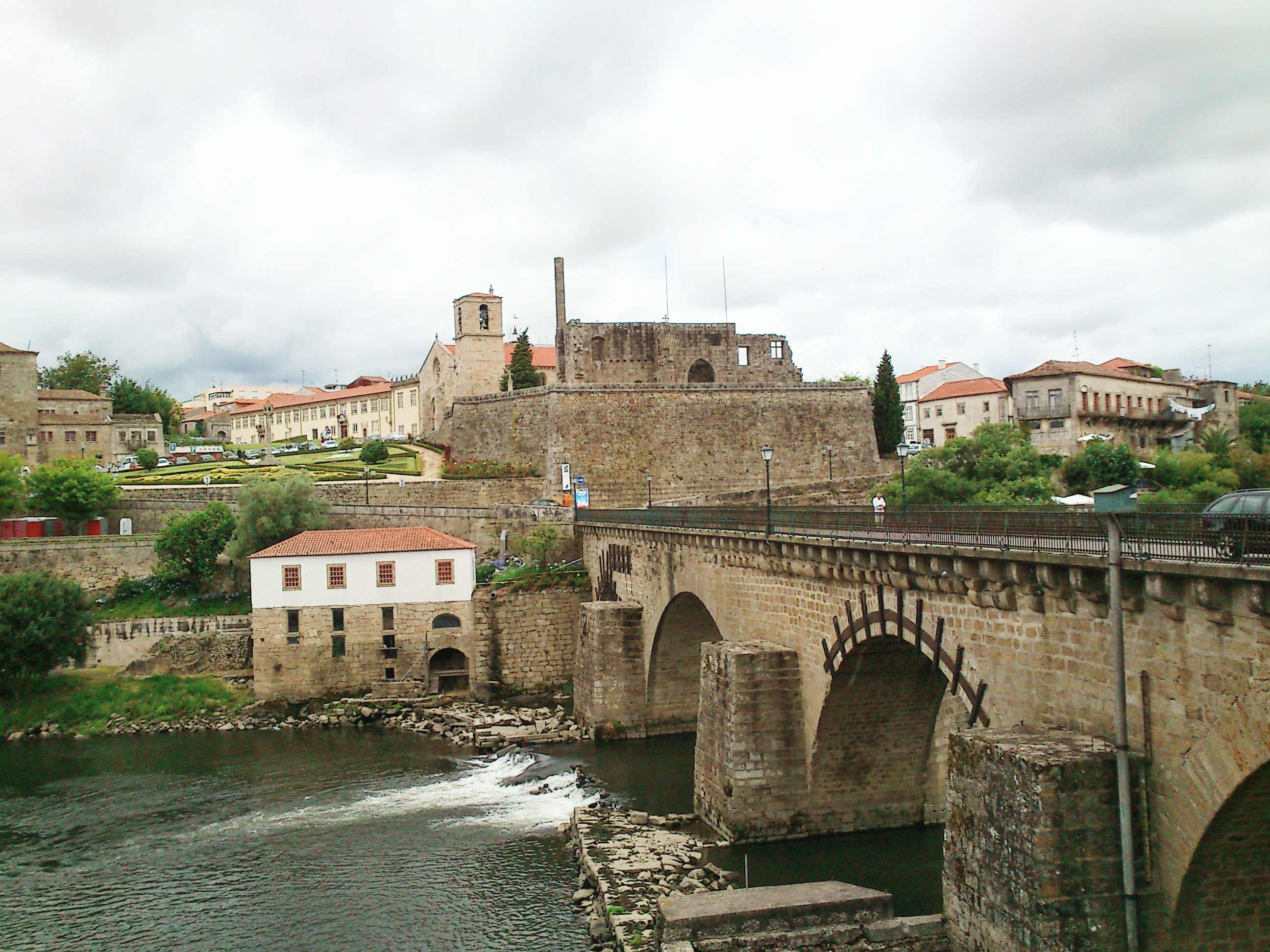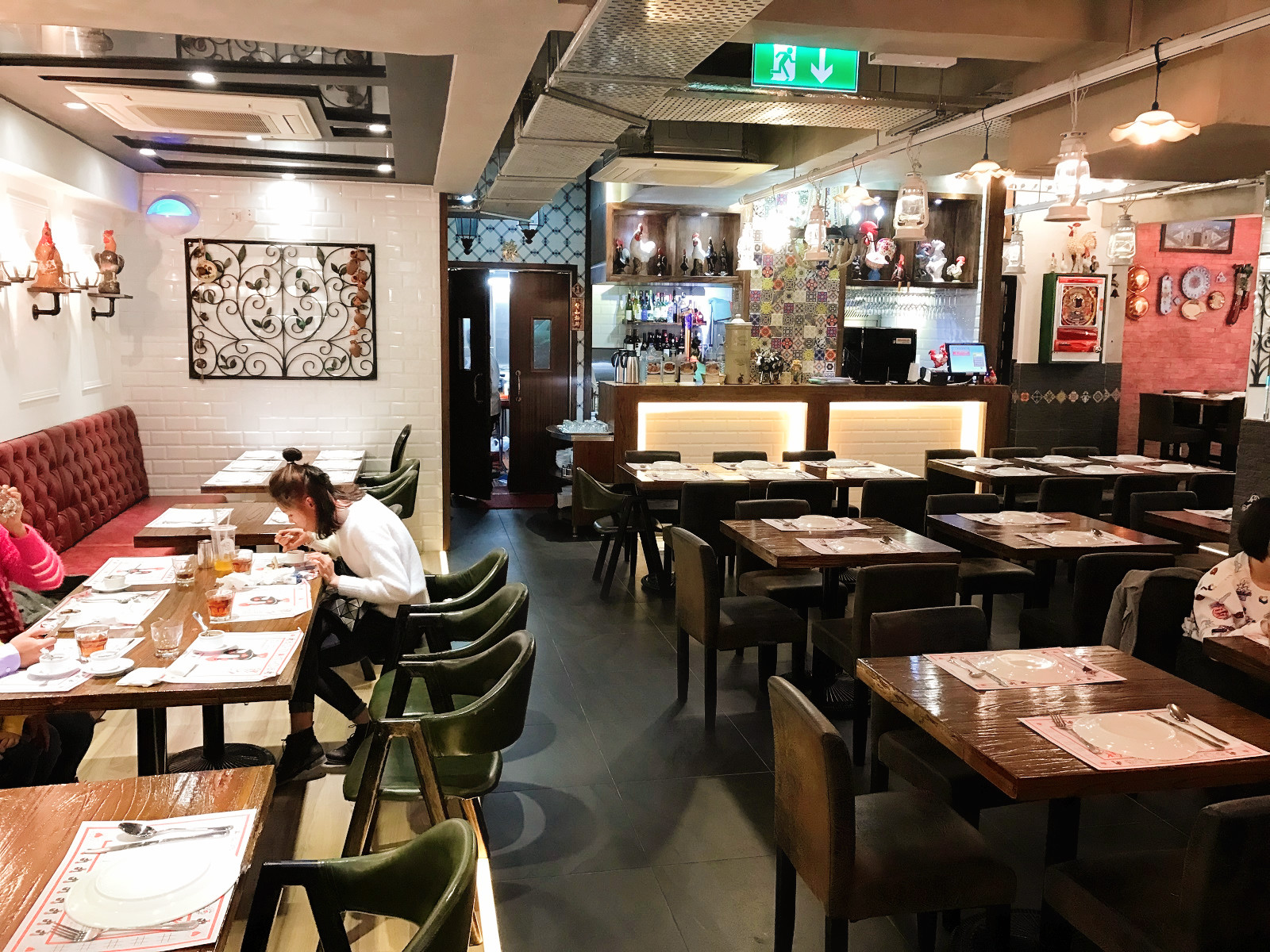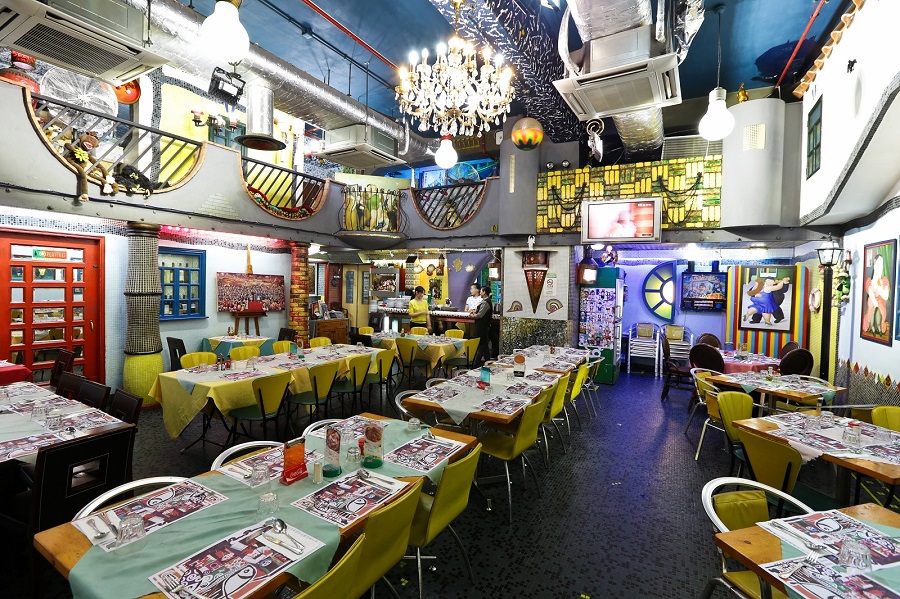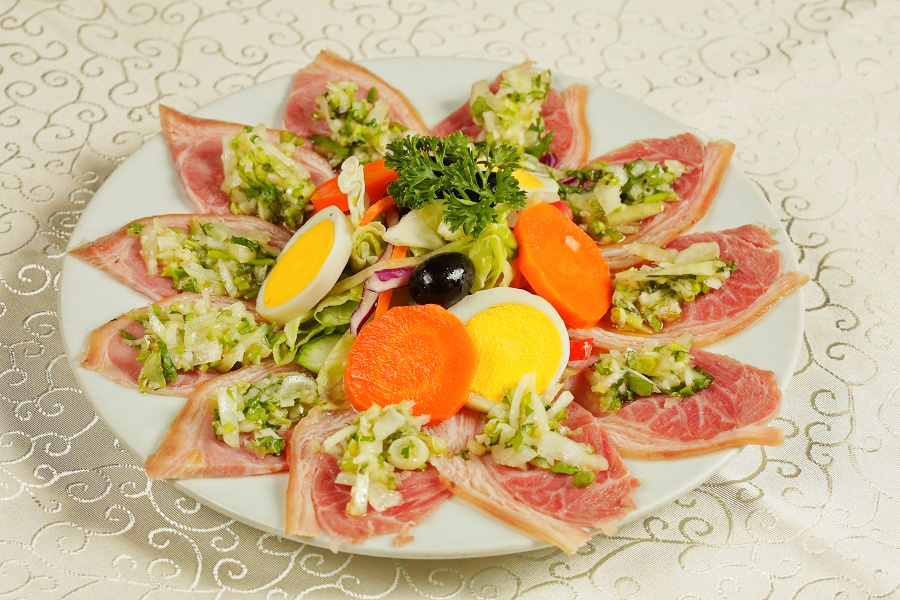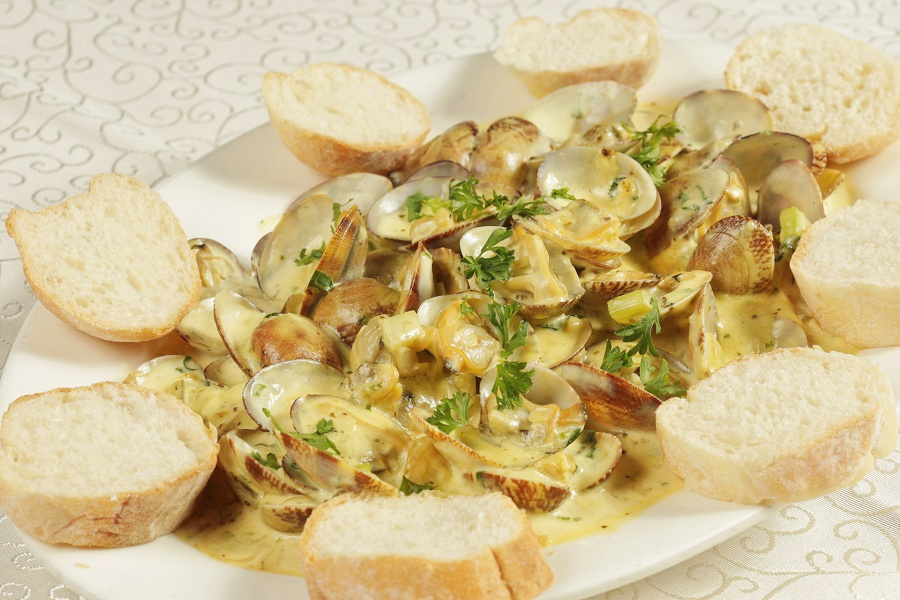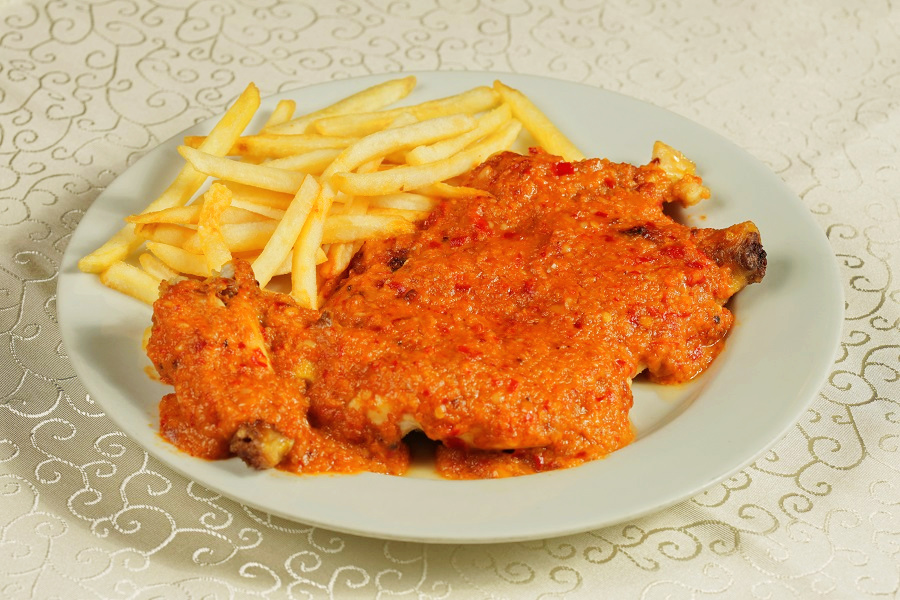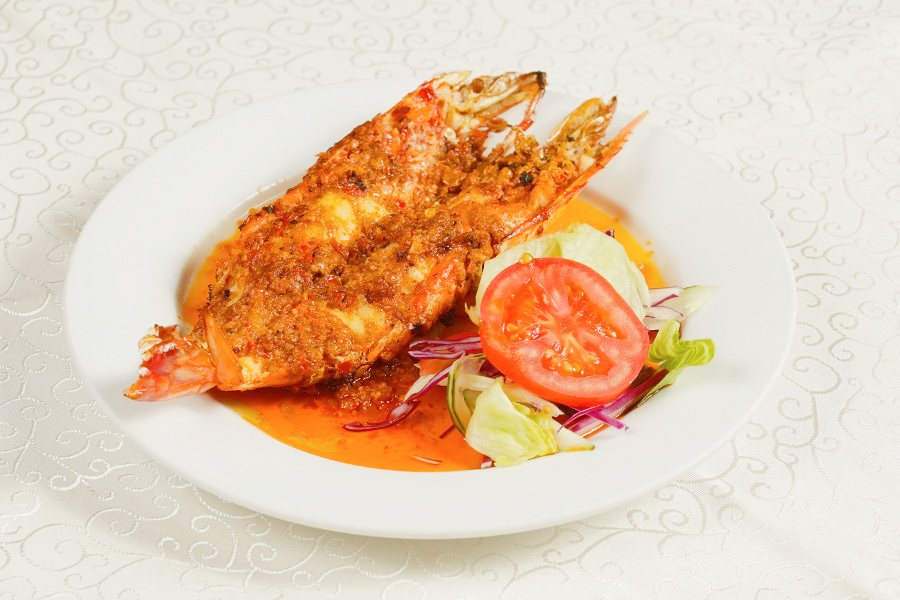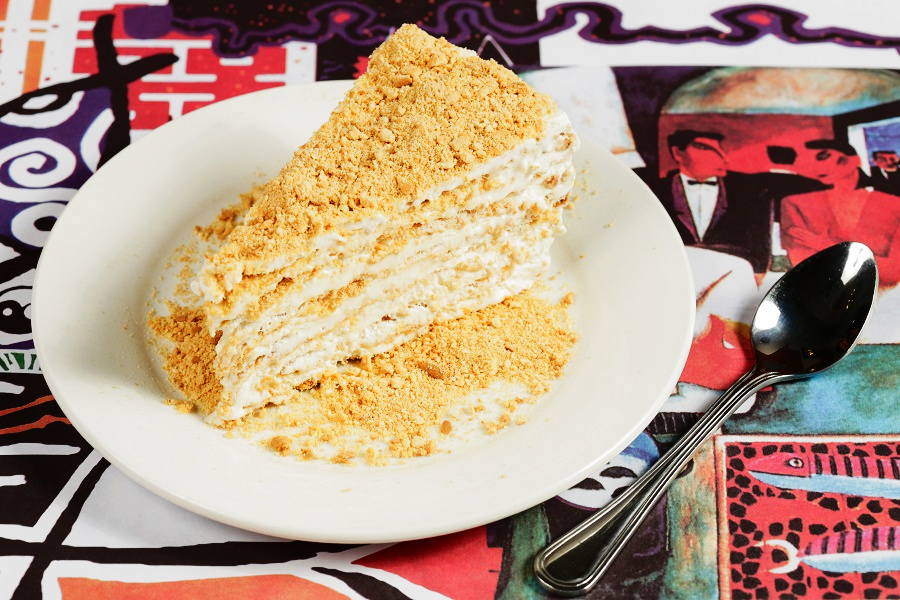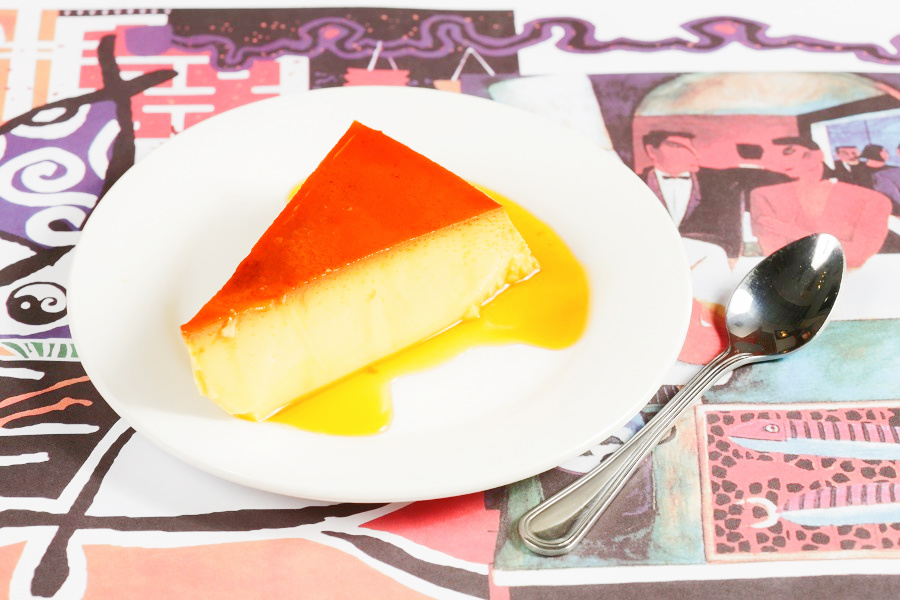Welcome!
The origin of the Portuguese rooster: in the 16th century, there was a small town called Barcelos in northern Portugal. One day, a pilgrim from Galicia was mistakenly accused of theft and was sentenced to death while he was on his way to Santiago. Before the execution, he yelled at the judge who was preparing to eat dinner, pointing to the rooster on his table: "If the rooster stands up and screams for me, it proves that I am innocent!" The people witnessing thought he was crazy but the rooster actually shakes his body, stands up, and screams loudly. The pilgrim was thus acquitted and escaped from death. Later, the story of the rooster’s manifestation spread throughout Portugal. The rooster became a symbol of justice, trust and good fortune in Portugal. It is today a Portuguese mascot and an unofficial national symbol. The Portuguese also use rooster patterns extensively in life and for various purposes. “Galo” is the Portuguese word for rooster.
“Galo” and “Dom Galo” Restaurants: more than 30 years ago, a Portuguese retired navy known as Jorge Marinheiro Mota arrived to Macau and he quickly felt in love with this small fishing village that relied on the sea for a living. With strong links to his roots, Jorge Mota founded the "Galo” Portuguese Restaurant, hoping that he could bring this Portuguese character to Macau with authentic cuisine. "Galo" is also the mascot of the Portuguese living in Macau.
“Galo” Portuguese Restaurant has been in business since 1987. For more than 30 years, “Galo” has been delightfully serving its customers authentic portuguese cuisine. Over the years, it has become a top attraction for Portuguese Food in Macau with many overseas guests.
